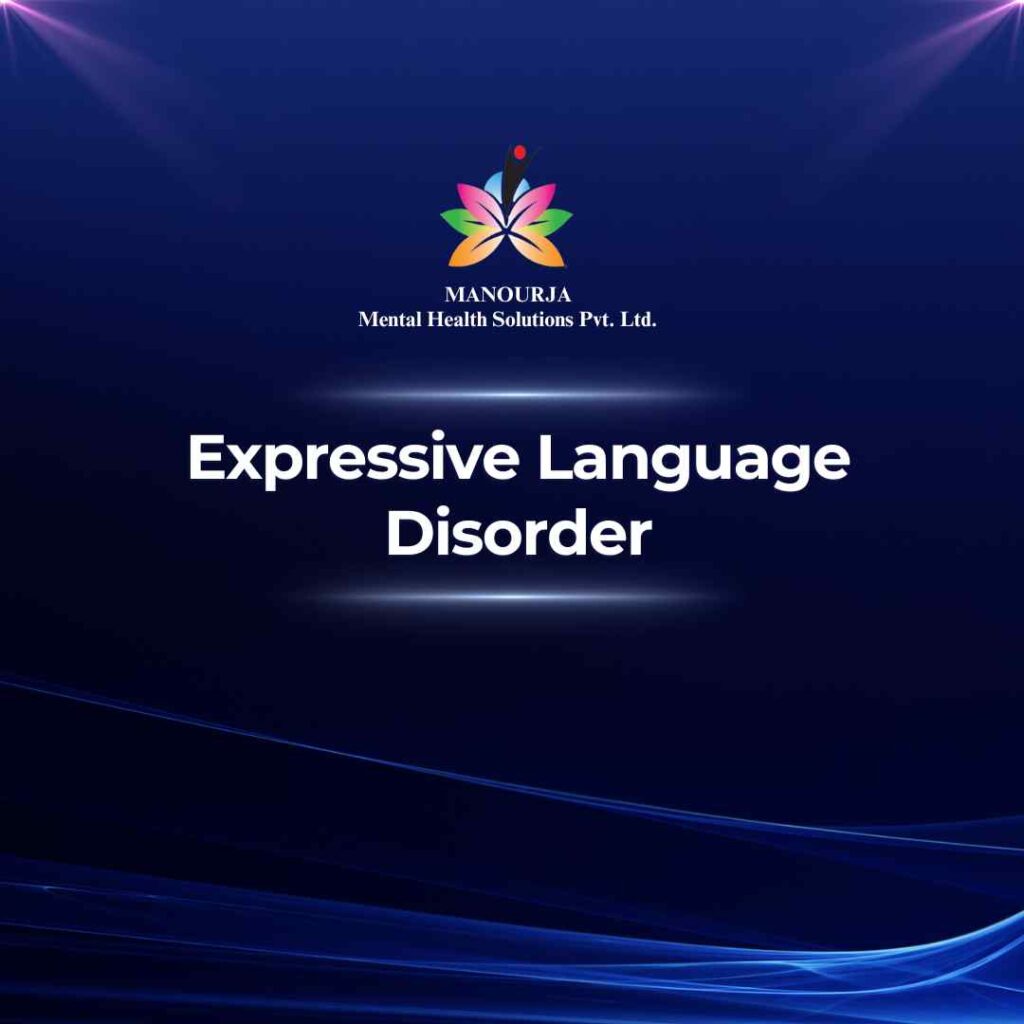Expressive Language Disorder

Expressive language disorder is a communication disorder that specifically impacts a person’s ability to verbally express themselves effectively. Individuals with this disorder struggle with using appropriate vocabulary, forming complete sentences, and recalling words, which affects their ability to communicate thoughts, ideas, and feelings clearly.
Symptoms of Expressive Language Disorder
- Limited Vocabulary: Individuals often have a smaller vocabulary than their peers, making it difficult to express complex ideas or feelings.
- Errors in Tense: Difficulty using correct verb tenses, often resulting in grammatical mistakes.
- Sentence Formation Issues: Challenges with forming complete and coherent sentences. Sentences may be simple and short, lacking the complexity typical for the individual’s age.
- Word Retrieval Issues: Frequent pauses or filler words like “um” or “like” due to struggling to recall specific words.
- Narrative Problems: Difficulties in telling stories or relaying events in a logical sequence, impacting their ability to engage in typical social exchanges.
Forms of Expressive Language Disorder
Expressive language disorder can vary widely in its severity and may appear in different forms:
- Mild: Individuals might only show subtle difficulties with expressive language that become noticeable in complex linguistic or social situations.
- Moderate to Severe: In more pronounced cases, the disorder can significantly impact daily communication, academic performance, and social interactions, requiring more intensive interventions.
The disorder can also be isolated, affecting only language production, or it can be part of a broader language issue, including receptive abilities.
Treatment of Expressive Language Disorder
Effective treatment plans for expressive language disorder are tailored to the specific needs of the individual and usually involve multiple strategies:
Speech and Language Therapy:
- The cornerstone of treatment, speech-language pathologists (SLPs) work with individuals to enhance their vocabulary, improve sentence structure, and develop effective communication strategies. Therapy might include exercises to practice forming sentences, storytelling to improve narrative skills, and explicit grammar instruction.
Educational Interventions:
- In school settings, special education services may be provided to support language development. This could involve individualized education programs (IEPs) that specify language goals and the methods to achieve them.
Home Support:
- Parents and caregivers are often involved in the therapeutic process. They might receive training from SLPs to learn how to encourage language development at home through everyday activities and interactions.
Technology Aids:
- Various apps and software designed for language development can supplement traditional therapy. These tools offer interactive and engaging ways to practice language skills.
Social Skills Groups:
- For those whose social interactions are affected, participating in social skills groups can provide opportunities to practice communication in a structured, supportive setting.
Regular Monitoring and Adjustment:
- Regular assessments by an SLP are important to monitor progress and adjust strategies as needed. This ensures that interventions remain appropriate as the individual’s skills develop and change over time.
Conclusion
Expressive language disorder presents significant challenges to individuals’ ability to communicate effectively. However, with appropriate, tailored interventions, most can see improvements in their language skills. Early intervention is particularly beneficial and can help mitigate the impact of the disorder on academic and social development.
At MANOURJA, we believe in the transformative power of counseling. Our experienced therapists offer a safe and supportive space where you can explore your thoughts, emotions, and challenges. Through personalized counselling sessions, we’ll work together to develop coping strategies, build resilience, and achieve lasting positive change. Discover the path to a healthier, happier you with MANOURJA counselling services.
MANOURJA Rehabilitation Services
At MANOURJA, we’re dedicated to helping you in rebuild your life, after difficult times. Our rehabilitation services focus on understanding what you need to move forward, whether you’re recovering from addiction, trauma, or any psychological – social challenges. We create personalized plans, that are all about helping you, regain your strength and find hope again. With a caring team by your side, you’ll have the support to make real progress and take steps toward a brighter, healthier future.
